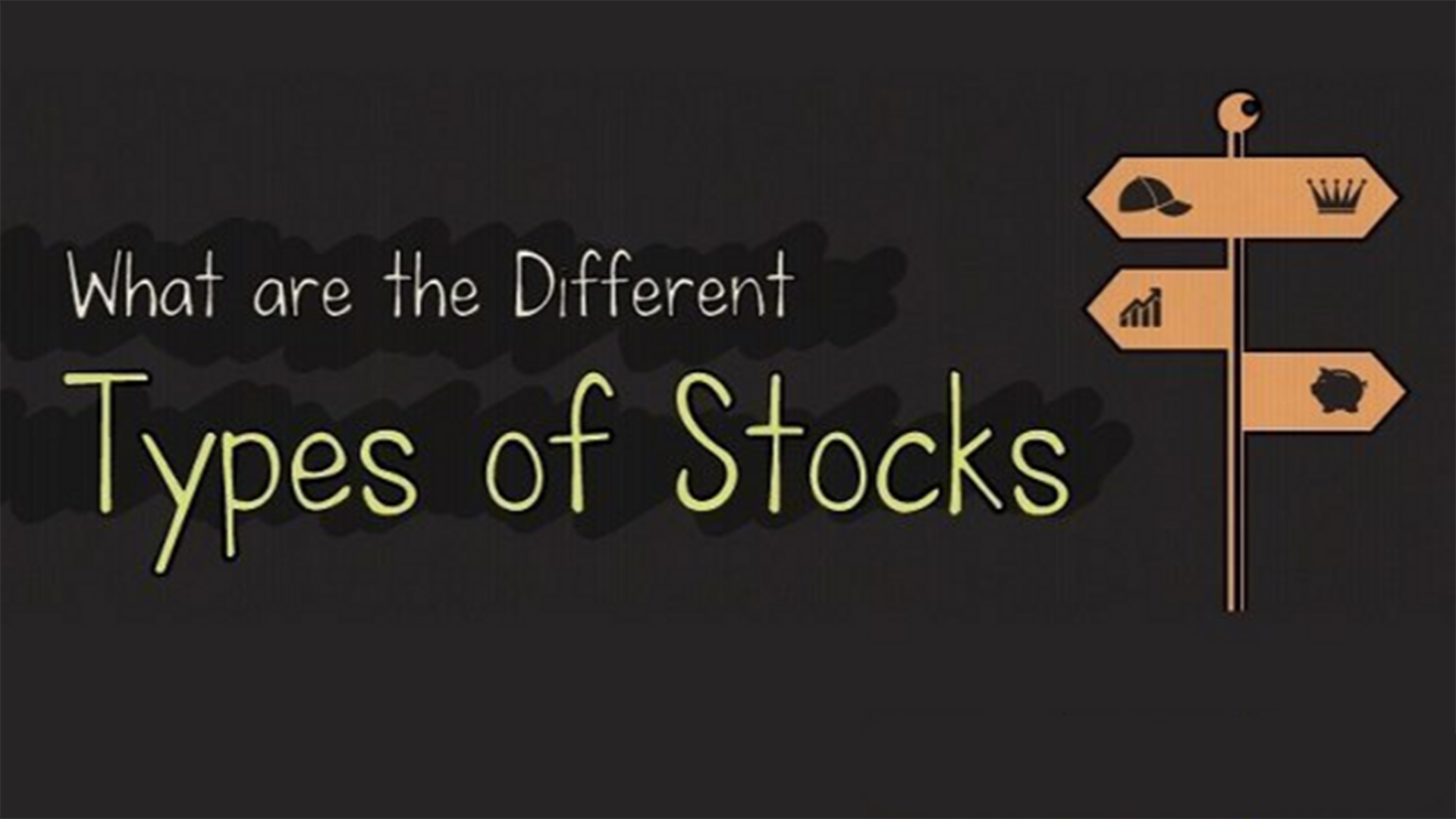What are the different types of stocks

There are two types of stocks
Common Stock
Preferred stock.
Common stock: Common
Stock is an investment security that represents the ownership of a company. For example, To a very close person, you say that he owns stock of a particular company then that stock is called common stock in types of stocks.
Where Total Return = Income received from investment + Any change in its value
Features of Common Stocks
The right to receive dividend payments typically from earnings. If allowed by the board of directors. The power to sell the stock (liquidity rights) and realize capital gains on public trading markets or in private transactions. If there are willing buyers.
The right to receive consideration in a merger or other fundamental transaction. If approved by the board and the shareholders.
Advantages of Common Stock
Common stock has the potential for delivering very large gains, unlike a bond, certificate of deposit, or some other alternatives.
It limits the potential loss from stock purchased with cash to the total initial investment. Stocks offer limited legal liability.
Disadvantages of Common Stock
Since common stock represents ownership of a business, stockholders are the last to get paid, like all other owners.
While shareholders are company owners, they do not enjoy all the rights and privileges that the owners of privately held companies do. Although past performance is not a guarantee of future performance,
stocks have historically offered very high returns about other investments.
Preferred stock
Preferred stock gives investors some level of ownership in a company, but preferred shareholders do not have voting rights. This stock may vary depending on company policies. However, preferred stocks are usually guaranteed dividend payments, and they always pay their dividends out before dividends on common stock.
Features of Preferred Stock
Preference in assets upon liquidation.
The shares provide dividend payments to shareholders.
Preferred shareholders have a priority in dividend payments over the holders of the common stock is a type of stock.
Advantages of Preferred stock
This type of financing allows issuers to avoid or defer the dilution of control, as the shares do not provide voting rights or limit these rights.
The shares do not force issuers to pay dividends to shareholders. So there is no obligation for dividends. The company’s management enjoys the flexibility to set up almost any terms for preferred shares.
Disadvantages of Preferred stock
As a general rule, preferred stockholders do not have the voting right. Therefore, they have no control over the management of the company to protect their interests.
Although preferred stockholders bear a substantial portion of ownership risk, they get a limited return.
© Copyright stocks96